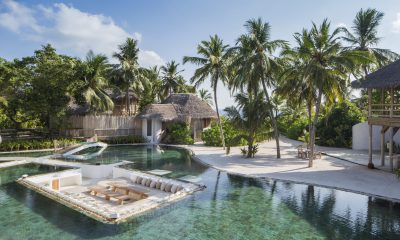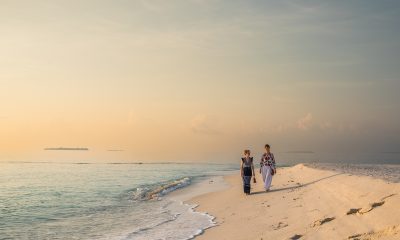Action
Learning to swim the Maldivian way

Maldives.net.mv – Seven Grade 3 children join hands in a circle in the shallow turquoise water of Soneva Fushi, Maldives. On the count of three they duck, submerging their faces into the warm water. Seconds later they jump up, squealing with contagious delight. With their instructors, they float on their backs and kick in the shallows, their giggles drowning out the sound of the waves.
So far, not so unusual. But for many of these island nation children, this is their first ever swimming lesson. Despite living on Eydhafushi, an island less than 1km long by half a kilometre wide and just one metre above sea level, most of these children are unable to swim. Unusually dark skies, intermittent rain and choppy water cannot dampen the excitement of the children as they receive their first proper instruction in the water.
Federica Siena, marine biologist at Soneva Fushi, is the lead of the two week learn-to-swim programme Her small stature belies a strength of focus, both in and out of the water. In a lilting Italian accent, she explains the motivation behind the programme:
“The idea came from the 2013 SLOW LIFE Symposium which is an annual environmental event hosted by Soneva. We had lots of conversations with marine experts and we thought that teaching kids seemed the most important way to inform the people around Soneva Fushi about protecting the ocean. It’s the first step in a bigger goal of environmental protection. Giving lectures and presentations wouldn’t work – the kids need to have a passion and start loving the sea.”

Filmmaker and six-time grantee of the National Geographic Expeditions Council Jon Bowermaster, is making a documentary film of the swim programme, with the aim of promoting swimming worldwide. He asks the children where they go to swim. We don’t, they respond. Why not? It is dangerous. There are dangerous fish and it is dirty.
The dangerous fish is questionable. But without doubt the shoreline at Eydhafushi is dirty. The parents refuse to let their children take their swimming lessons there and with good reason. The contrast between the litter-strewn beaches of local islands and the clean white sand of resort islands like Soneva Fushi is impossible to ignore. In a nation with few municipal waste facilities and huge stress on the limited available land, the sea has traditionally been a useful dumping ground. But just one or two generations ago that waste would have been food waste and biodegradable matter. Today it is plastic bottles, plastic packaging and aluminium cans.
“I have travelled around the world studying the way people who live on the edge of the ocean react to it, treat it. Sadly there are many places where the ocean has been abused by people mistreating it for decades,” says Jon.
“The goal with our learn-to-swim programme is to teach kids, and parents, to swim, to gain a confidence that will keep them safe in the ocean, but also encourage them to be better protectors of the ocean. Once they’ve swum here, seen the sandy bottom and the fish, they’ll become stewards of taking care of it.”

Earlier in the day, 17 mothers of the same group of children join for their first lesson. The lesson begins with simple steps. They start with feeling comfortable with their faces in the water. They learn to exhale through the nose and inhale through the mouth, and progress to floating on their backs. The sound of their laughter competes with that of the children.
Lead instructor for the swim programme is Nathan Tschohl from Diversity in Aquatics, a non-profit committed to reducing annual drowning statistics and to increasing diversity in the profile of swimmers worldwide. A staggering 1.2m people drown worldwide each year, a figure Nathan is determined to see fall. He looks satisfied as he waves the mothers off at the end of class. “This was 100 times more than I was hoping for. There was no fear among these women. They will go home and tell their friends and family. This could be a really important stepping stone.”
Meanwhile, it is the turn of the children. Nine year old Iraahath is not so sure as the mothers. She arrives in tears, probably afraid of the water, possibly feeling shy, yet within minutes she has her face in the water and excitement conquers fear. “Vaagi dhookollaa!”, her instructor tells her – relax!
Drying off over sweet pastries, the exhilarated children share stories of their first swimming lesson. Nine year old Ida has a huge smile. The slogan on her bright green t-shirt screams Don’t Look At Me but it is hard not too. She confidently tells me that today she was very scared when she put her face in the water for the first time but that at the end of two weeks she will be snorkelling on the reef. “I will go into the deep. Because I will learn!”
Action
Sheraton Maldives Full Moon celebrates sixth anniversary of Reefscapers collaboration
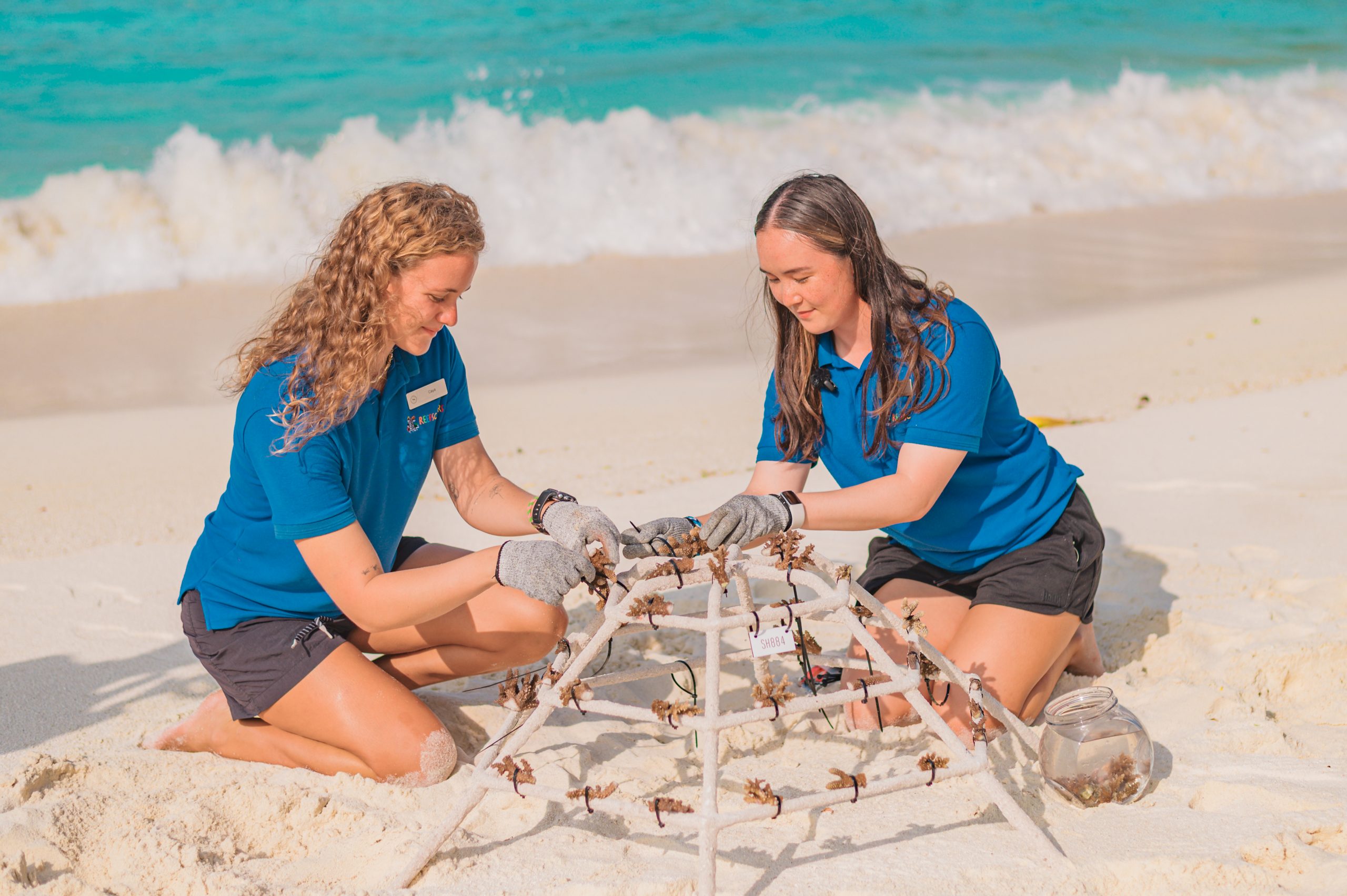
Sheraton Maldives Full Moon Resort & Spa marks the sixth anniversary of its partnership with Reefscapers on February 19, 2026, reaffirming its commitment to protecting and restoring the Maldives’ fragile reef ecosystems. Since launching the partnership in 2020, the resort and Reefscapers have worked together to restore coral habitats, support marine biodiversity, and engage guests in meaningful conservation experiences. The milestone also marks one year since the successful relocation of approximately five tons of coral to the resort’s house reefs — one of the partnership’s most significant conservation initiatives.
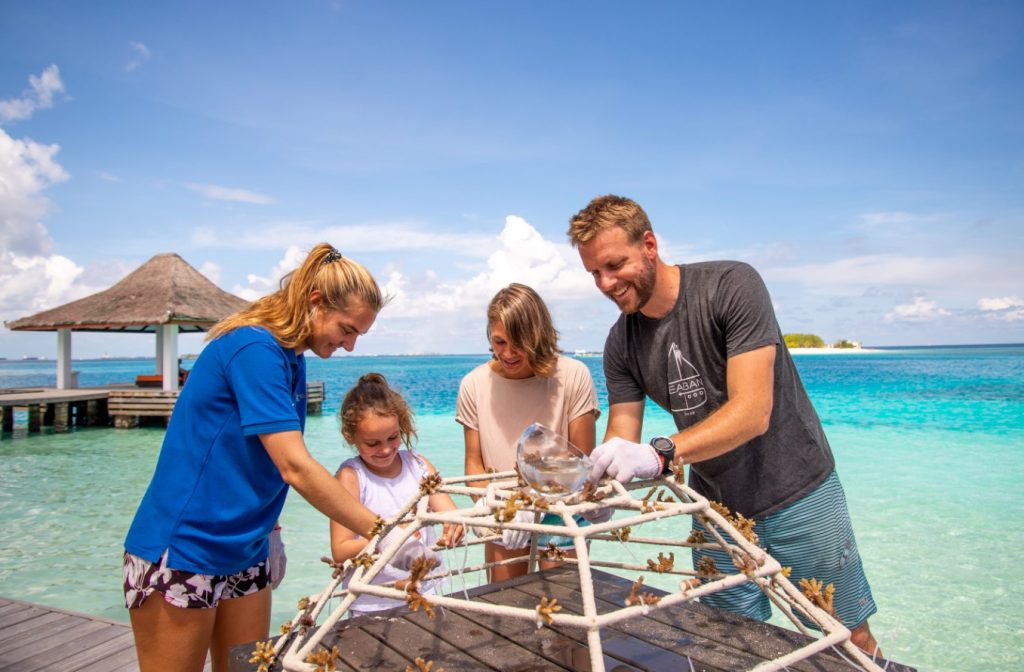
Over the past six years, the partnership has become a defining pillar of the resort’s sustainability journey, blending scientific restoration with purposeful guest engagement. To date, the initiative has resulted in the planting of 898 coral frames, supporting approximately 33,000 coral colonies now growing across the restoration sites. Through coral propagation, reef monitoring, and awareness programmes, these efforts continue to regenerate reef structures while deepening understanding of the essential role coral ecosystems play in sustaining marine life and protecting coastlines. Each thriving coral frame reflects a shared dedication to preserving the natural wonders that make the Maldives one of the world’s most extraordinary marine destinations.
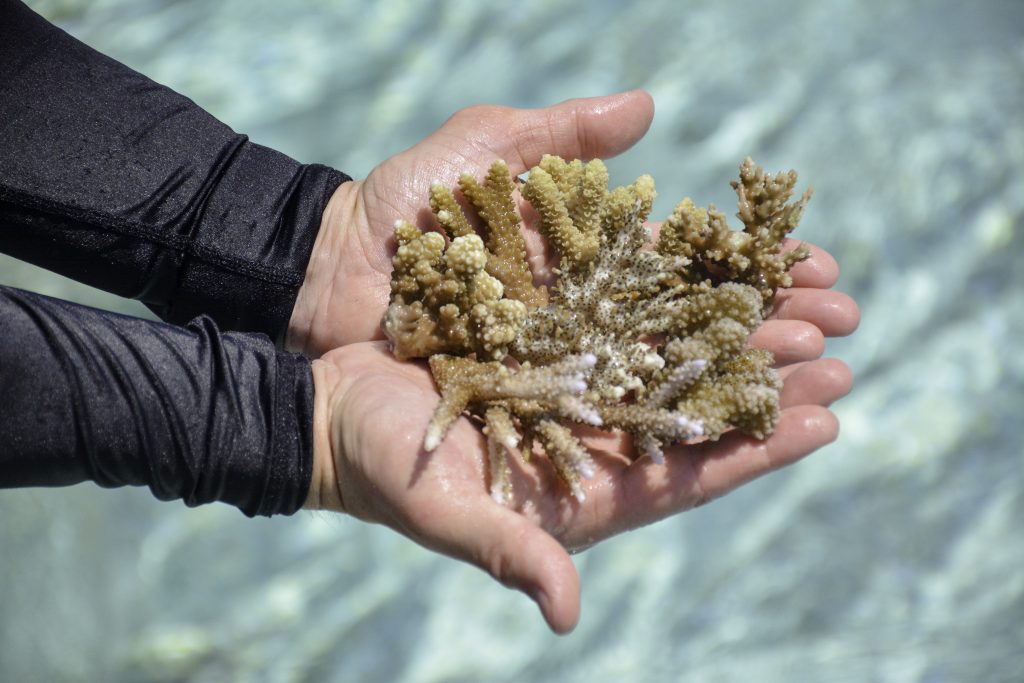
“What makes this partnership special is seeing how small, consistent actions turn into real change underwater. Watching the relocated corals settle, survive, and begin to grow over the past year has been incredibly rewarding for us and the guests who return and witness how they’ve helped restore a living reef,” shares Katelyn, the resort’s Marine Biologist.
A defining achievement of the collaboration has been the coral relocation project, which carefully transferred coral colonies from Ras Malé, also known as the Maldives Eco City, to the resort’s dedicated restoration site, safeguarding them from potential threats linked to land reclamation activities in the Fushi Dhiggaru Lagoon. One year on, these corals continue to flourish beneath the surface, strengthening reef resilience and contributing to the long-term health of the surrounding ecosystem.
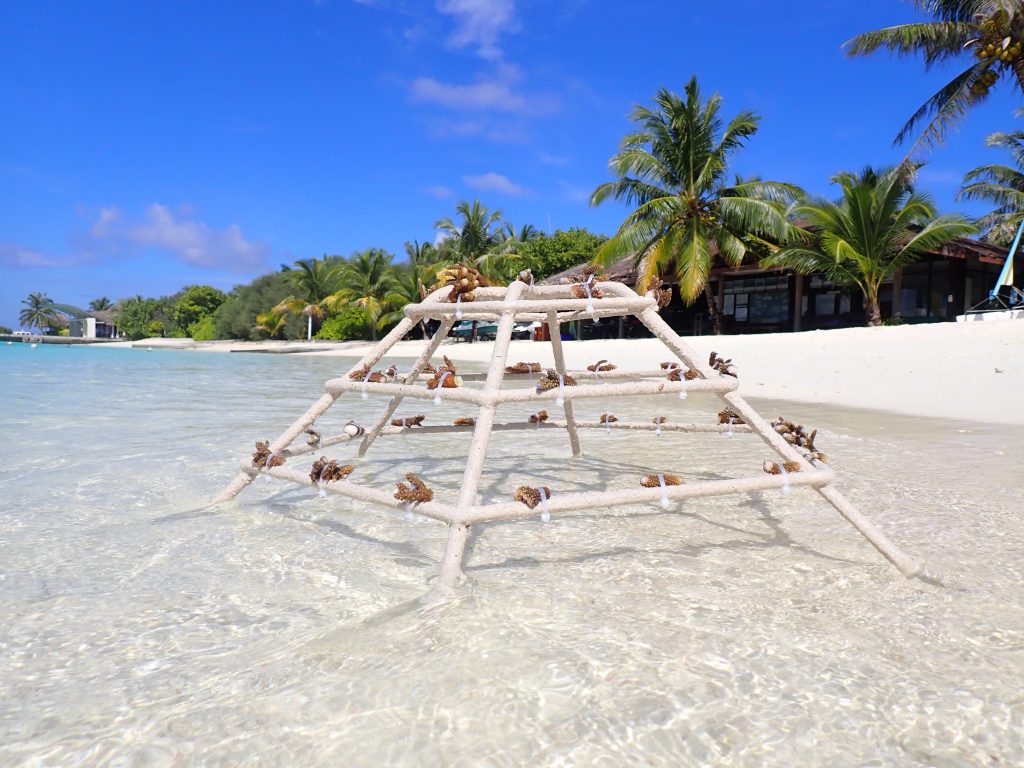
At the heart of the partnership lies the resort’s Adopt a Coral programme, part of the Good Travel with Marriott Bonvoy initiative, which encourages guests to travel with intention through meaningful environmental experiences. Through this hands-on activity, visitors can adopt and name a coral frame while learning directly from marine experts about coral ecology and the importance of protecting marine habitats.
To deepen this connection beyond the stay, guests receive growth updates on their adopted corals every six months, allowing them to follow the progress of their living contribution to the reef. As these corals grow over time, they become enduring symbols of renewal and shared responsibility, transforming a holiday memory into a lasting environmental legacy, and reflecting how travel can positively support local ecosystems and communities.
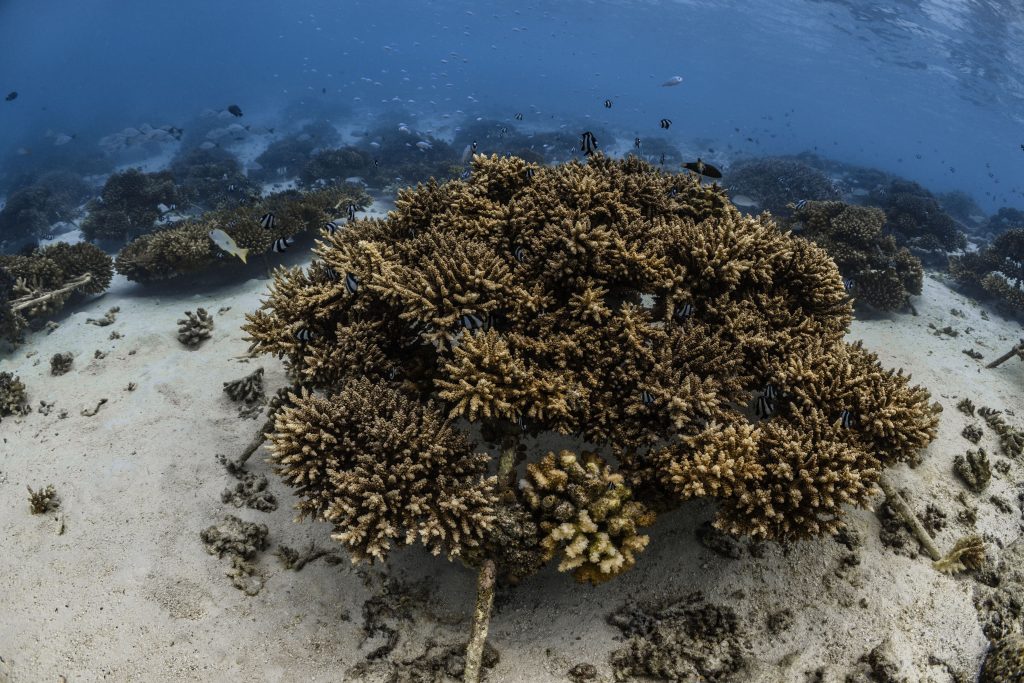
“Our island is surrounded by a remarkable marine environment, and protecting it is a responsibility we take seriously. Our partnership with Reefscapers reflects our belief that hospitality should go hand in hand with stewardship. Seeing the reef restoration progress over the past six years, and the involvement of our guests and associates in that journey, makes this anniversary especially meaningful for all of us,” comments Greg Allan, General Manager of Sheraton Maldives Full Moon Resort & Spa.
Through its continued collaboration with Reefscapers, Sheraton Maldives Full Moon Resort & Spa remains dedicated to advancing marine conservation while creating purposeful guest experiences rooted in sustainability, education, and connection to nature.
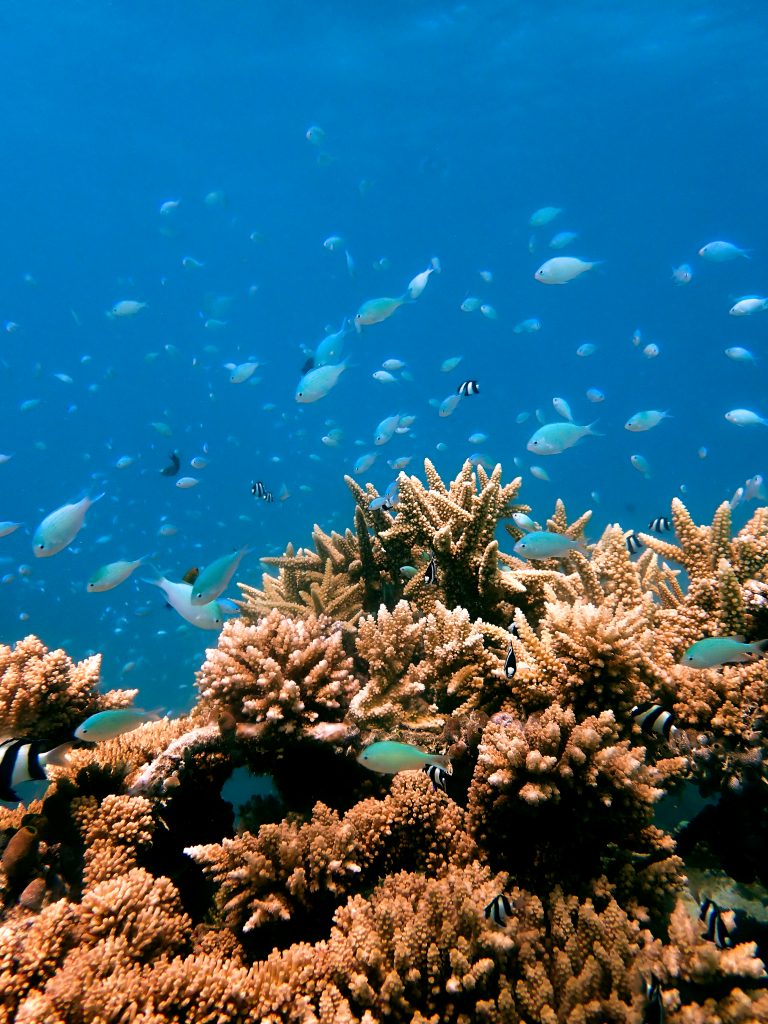
To discover more about the resort’s sustainability initiatives, join the Adopt a Coral programme, or plan a stay that supports reef conservation, visit sheratonmaldives.com or contact the reservations team at Sheraton.Maldives@sheraton.com.
Action
Sun Siyam Vilu Reef unveils expanded marine excursion portfolio

Sun Siyam Vilu Reef, part of the Sun Siyam Privé Collection, has introduced an expanded portfolio of water-based experiences designed to showcase the natural environment and marine life of the surrounding atolls. The enhanced programme combines exploration, activity and moments of calm, offering guests new ways to experience the Maldives through curated ocean journeys and personalised excursions.
Building on established activities such as Jet Car rides, SeaBob adventures and windsurfing, the resort has expanded its watersports offering to include private speedboat journeys and bespoke marine experiences. These additions are tailored for small groups seeking intimate and meaningful encounters with the ocean.
Available daily from the resort’s Watersports Centre, the new private speedboat excursions provide a personalised way to explore the hidden marine sites of Dhaalu Atoll. Designed for one to four guests, each journey offers flexibility and individual attention. Guests may choose from four-hour, five-hour or full-day itineraries, all of which include a freshly prepared barbecue lunch. From coral gardens to secluded sandbanks, the excursions highlight the region’s diverse marine landscapes.
The programme’s centrepiece is the Full Day Adventure Trip, which offers an extended exploration of key marine locations. Highlights include the Coral Garden, known for its biodiversity and reef formations; Turtle Point, where sea turtles are frequently sighted; and Nurse Shark Point, which provides opportunities to observe nurse sharks in their natural environment. The experience concludes with a beachside lunch on a private sandbank, set against uninterrupted views of the Indian Ocean.
For guests seeking a balance between activity and relaxation, the Waves of Adventure and Calmness experience combines a private two-hour snorkelling safari or Jet Ski safari with a full-body massage at the resort. The programme is designed to transition smoothly from ocean exploration to restorative island time, reflecting the relaxed pace that characterises Sun Siyam Vilu Reef.
As part of the Sun Siyam Privé Collection, Sun Siyam Vilu Reef continues to focus on personalised service and experiences rooted in the natural setting of the Maldives. Through its expanded watersports offering, the resort invites guests to engage with the marine environment while enjoying a sense of privacy, discovery and connection to the Maldivian seascape.
Action
Atmosphere Foundation launches annual dive training scholarship for Maldivians
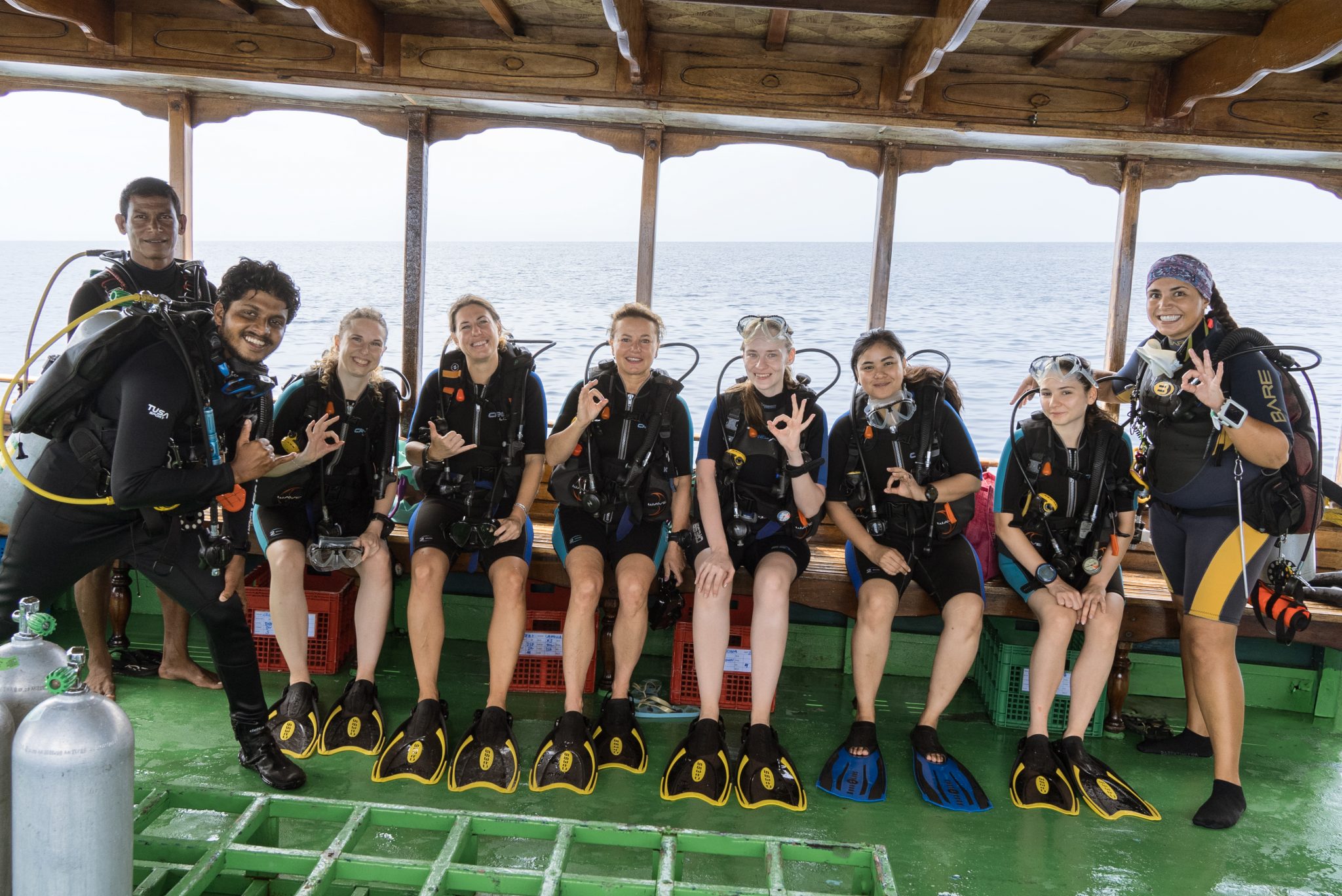
Atmosphere Foundation has launched a new annual scholarship programme that will sponsor 10 Maldivians each year to complete internationally recognised scuba diving training and professional development pathways, supporting youth career growth while strengthening the Maldivian workforce in tourism.
Designed to create clearer entry points into the industry and help Maldivians advance from foundational training to professional roles, the programme will provide sponsored candidates with access to a structured set of certifications that can lead to employment opportunities in resort dive centres, watersports operations, and marine excursions across the country.
The programme will support both beginners and those already working in the sector who want to progress further. By sponsoring these certifications, the initiative aims to help participants develop technical competence, safety capabilities and professional readiness—skills that are essential for career progression in dive and marine-related roles within the tourism industry.
To ensure the programme delivers direct long-term value to the Maldives, successful candidates will be required to work in the Maldives for a specified period after completing their course. This service commitment is intended to strengthen local capacity within the tourism workforce, help resorts access qualified Maldivian professionals, and support career continuity for young people entering the sector.
“Tourism is the Maldives’ greatest economic mainstay, and our future depends on ensuring Maldivians are represented across the industry—not only at entry level, but in specialist and leadership positions as well,” said Abdul Azeez Abdul Hakeem, Vice President of Atmosphere Foundation. “This programme is designed to remove barriers to training, equip young people with globally recognised qualifications, and support them to progress from the beginning of their careers to new heights. The service component also ensures that the skills gained remain in the Maldives and contribute to the development of our tourism workforce.”
Atmosphere Foundation continues to develop and support initiatives that contribute to community wellbeing and opportunity, with a focus on empowering youth, building skills, and creating sustainable pathways for Maldivians. The annual dive training sponsorship programme builds on the Foundation’s broader mission to deliver meaningful, practical support that helps individuals and communities thrive—while contributing to the long-term resilience of the national economy.
Further information on how to apply, programme partners and timelines will be announced soon through Atmosphere Foundation’s official channels.
-
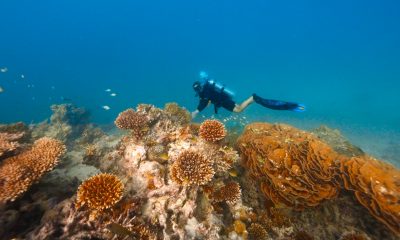
 News1 week ago
News1 week agoVentive Hospitality aligns Maldives portfolio with Green Fins marine sustainability platform
-
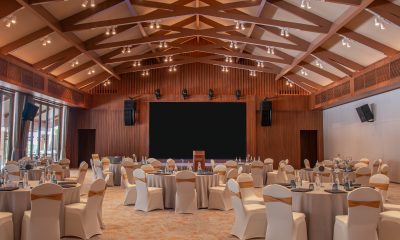
 Business1 week ago
Business1 week agoFeydhoo Hall opens at dusitD2 Feydhoo Maldives as new event space
-
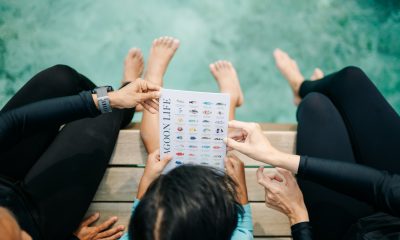
 News1 week ago
News1 week agoThe Ritz-Carlton Maldives, Fari Islands launches conservation programme for environmental observances
-
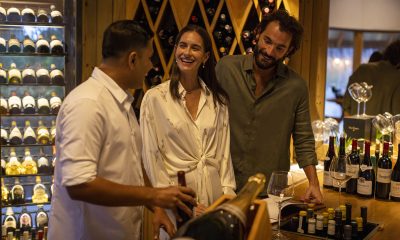
 Drink1 week ago
Drink1 week agoProvence comes to Maldives with Château Minuty dinner at Milaidhoo Maldives
-
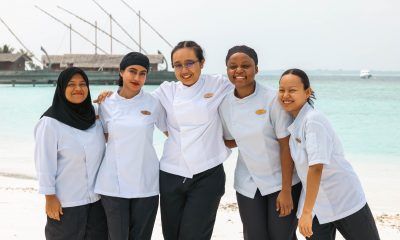
 Cooking1 week ago
Cooking1 week agoWomen at heart of kitchen: Milaidhoo Maldives marks International Women’s Day through gastronomy
-

 Featured1 week ago
Featured1 week agoCity Iftar experience curated at JEN Maldives by Shangri-La
-
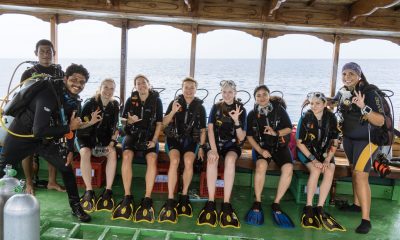
 Action7 days ago
Action7 days agoAtmosphere Foundation launches annual dive training scholarship for Maldivians
-

 Family1 week ago
Family1 week agoEaster goes playful at The Standard, Maldives with week-long Angry Birds celebration




